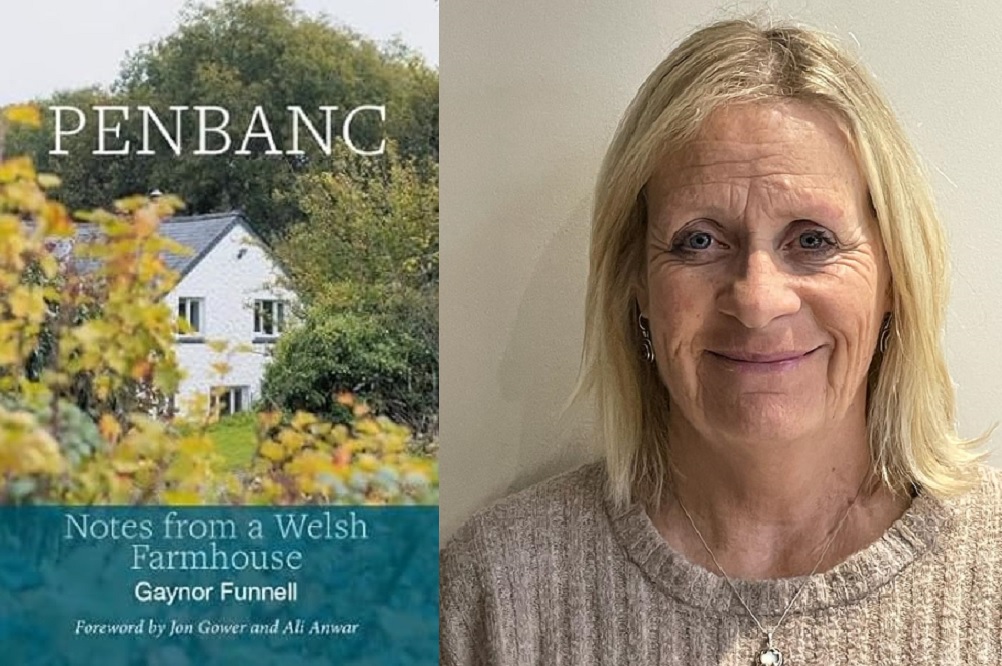On being a Writer in Wales: Gaynor Funnell

Gaynor Funnell
I’ve only written creatively since living in Wales. Born in a small Welsh village with almost as many pubs and churches as people, I left when I was a child, and even though we lived on the other side of the original Severn bridge, (my dad maintaining until the day he died that he lived abroad), being Welsh was woven through our life.
Rugby and male voice choirs, daffodils on St Davids day, Mum making Welsh cakes on a bakestone, their visits to the Eisteddfod. Only our postcode was wrong.
I returned to Wales in 2010, moving to live in the Pembrokeshire countryside. I’d been there five years before writing became a means to express myself in a way I hadn’t been able to before.
The surrounding landscape and nature gave me so much that I wrote in an attempt to give something back, something more than I’d taken.
Musicality
I don’t speak Welsh. My dad’s family had done so through the ages, never moving more than a few miles from where they were born, and I thought there may be a genetic memory of the language deep within me, ready to appear if I immersed myself in the country, but no such memory existed.
To me, the Welsh language and the accent has a musicality about it, so I think I’m trying to create this ‘musicality’ in words, as well as that bittersweet, yearning, haunting quality that pervades the Wales I know.
Place and how it affects us is inherent in my writing, places as they are now and how they once were. How they shape us as much as we shape them. The places that stay with us no matter what.
Penbanc, my first book, is the result of being at one with such a place.
I need to be outside with nature to be able to write. If I’m not able to get into the countryside every day, my voice falters, and if I’m stuck, a walk will clear my head. Walking on paths, through woodland, along the shoreline, allows ideas to become known to me.
I write about what I see and how it makes me feel, and at this moment in time, the current ecological crisis is something that resonates deeply.
Identity
Although I’m normally organised, I don’t have a set place or time to write. I’ve tried sitting at desks and at tables, but always come back to sitting in the corner of the same old sofa, my feet on a stool, with books scattered around one side of me and a dog on the other. Like now.
I always write with pen and notepad and often have phrases or prompts written on scraps of paper or the back of envelopes which I fail to keep in any order, before transferring everything onto the laptop, which balances precariously on my knees, and with which I have a love/hate relationship.
Winning the Nigel Jenkins Literary Award in 2022 and having a book published as a result of this, made me believe I could now call myself a writer.
In the main, this process has been due to the people around me, the teachers, tutors, fellow students, fellow authors, all of these being so supportive to each other’s work as well as my own.
A community like the small village I came from, with a similar sense of identity. It’s as if we’re all on the same side. And being Welsh, and living in Wales, a country small in size but large in heart, a place often marginalised and ignored, that feels like a gift.
Penbanc – Notes from a Welsh Farmhouse by Gaynor Funnell is published by the H’mm Foundation and is available from all good bookshops.
The book will be launched on Saturday 9 December at 6pm at the HQ Urban Kitchen in Swansea, as part of an evening to celebrate the poetry and legacy of Nigel Jenkins, and to celebrate the recipients of the Nigel Jenkins’ Literary Award 2023, Charlotte Stephens and Anastasios Evangelou.
Support our Nation today
For the price of a cup of coffee a month you can help us create an independent, not-for-profit, national news service for the people of Wales, by the people of Wales.





